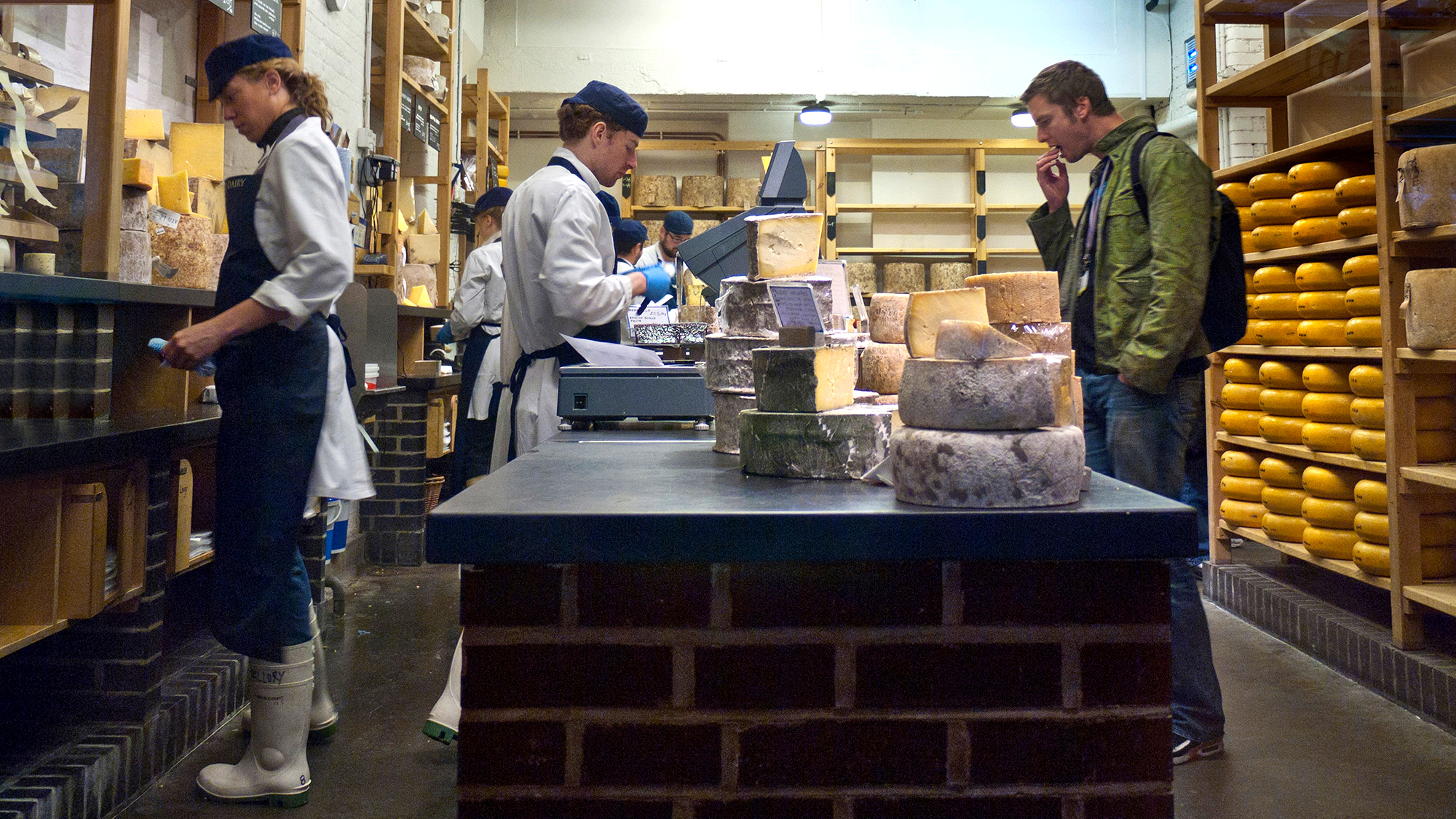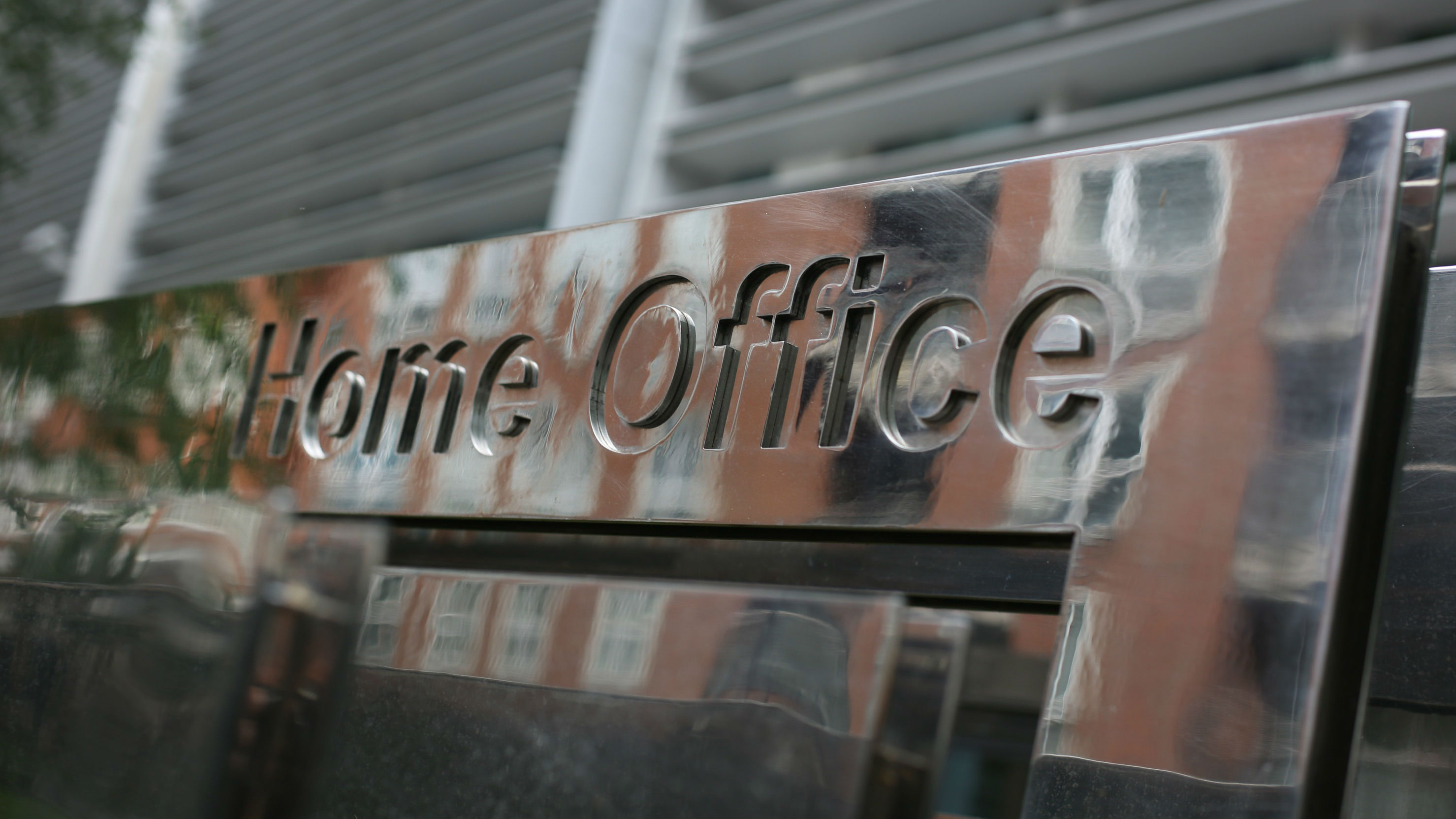The 'great cheese robbery' and the rise of food scams
Blackmails, hoax orders and phishing tricks are hitting restaurants and suppliers hard

A free daily email with the biggest news stories of the day – and the best features from TheWeek.com
You are now subscribed
Your newsletter sign-up was successful
A "great cheese robbery", which saw Cheddar worth hundreds of thousands of pounds stolen from an artisan London cheesemonger, has highlighted how food retailers and restaurants are becoming more vulnerable to scams.
Some £300,000 of premium British Cheddar was taken from Neal's Yard Dairy by conmen pretending to be buyers from a French supermarket, and who failed to pay up. The shop has been "overwhelmed" with support after news broke of the cheese theft, said London's The Standard and the celebrity chef, Jamie Oliver, has asked his 10.5 million Instagram followers on social media to be alert for "lorryloads of posh cheese" being sold "for cheap".
'Dodgy dealers'
Patrick Holden, who owns the farm where some of the stolen Cheddar was made, told the BBC that the artisan cheese sector is "a place where trust is deeply embedded in all transactions", and "a world where one's word is one's bond". But scams are a problem across the food and restaurant business.
The Week
Escape your echo chamber. Get the facts behind the news, plus analysis from multiple perspectives.

Sign up for The Week's Free Newsletters
From our morning news briefing to a weekly Good News Newsletter, get the best of The Week delivered directly to your inbox.
From our morning news briefing to a weekly Good News Newsletter, get the best of The Week delivered directly to your inbox.
The cheese con story felt all too familiar to Chris Swales of Chapel and Swan Smokehouse. This summer, he told The Times, he received an email ordering "substantial quantities" of smoked salmon for a French supermarket. But two weeks after a UK haulage firm collected the fish, the buyer still hadn't paid, so Swales drove to the supposed "supermarket distribution hub" where the fish had been taken and discovered it was in fact a "dodgy car dealer in east London".
He couldn't contact the people who ordered the fish and his insurance terms don't cover the con, he said, so "it looks like I'll take the full hit". The con "won't put us out of business", but it has made life "incredibly hard" at a time when it is "already difficult".
Reputation blackmailers
Blackmailers have targeted restaurants using threats of fake reviews to extort payment. The owners of the Bracebridge restaurant chain were contacted on WhatsApp by a scammer who demanded £2,000 and threatened to flood the group's Google listings with fake one-star reviews.
Independent restaurant groups are the "perfect targets" for these sorts of "scammers", said The Sunday Times, because they are "big enough to be able to pay", but "not big enough to afford the lawyers and consultants needed to solve the problem", and "incredibly reliant" on their online reputations.
A free daily email with the biggest news stories of the day – and the best features from TheWeek.com
Another increasingly common con involves "phishing scammers" calling a restaurant pretending to be from a reservation-taking platform and asking staff to confirm account log-in information, said booking platform OpenTable. The scammer would then use the reservation details stored on the account to contact diners and request credit card information, "often under the guise of placing or refunding a deposit".
Holey as Swiss cheese
The "Cheddar heist" shows British supply chains are "as holey as Swiss cheese", said The Times, noting that invoice fraud rose last year by 11%, according to UK Finance, putting the total cost of fraud to the economy at £1.2 billion.
But "managing fraud" is not the "core competency" of food business people, wrote Morgan Ackley for Kount. Owners are often stuck in a "vicious cycle of risk and reward" because restaurants "generally have low profit margins". The desperation of food firms and the competitive industry they work in make them ripe for being conned. As Swales said, the hoax fish deal was "the sort of business we were aiming for" and "we were so up for it". The people who conned him "knew the desire of a small business to grow" and "we've been punished for that".
Chas Newkey-Burden has been part of The Week Digital team for more than a decade and a journalist for 25 years, starting out on the irreverent football weekly 90 Minutes, before moving to lifestyle magazines Loaded and Attitude. He was a columnist for The Big Issue and landed a world exclusive with David Beckham that became the weekly magazine’s bestselling issue. He now writes regularly for The Guardian, The Telegraph, The Independent, Metro, FourFourTwo and the i new site. He is also the author of a number of non-fiction books.
-
 How the FCC’s ‘equal time’ rule works
How the FCC’s ‘equal time’ rule worksIn the Spotlight The law is at the heart of the Colbert-CBS conflict
-
 What is the endgame in the DHS shutdown?
What is the endgame in the DHS shutdown?Today’s Big Question Democrats want to rein in ICE’s immigration crackdown
-
 ‘Poor time management isn’t just an inconvenience’
‘Poor time management isn’t just an inconvenience’Instant Opinion Opinion, comment and editorials of the day
-
 Pig butchering: one of the world's fastest growing scams
Pig butchering: one of the world's fastest growing scamsIn the Spotlight Beijing is cracking down on the crypto con but this has only pushed it worldwide
-
 The UK's scams and fraud epidemic
The UK's scams and fraud epidemicThe Explainer Record numbers are complaining they've fallen victim to online fraudsters
-
 Celebrity lawyer Tom Girardi convicted of fraud
Celebrity lawyer Tom Girardi convicted of fraudSpeed read Former 'Real Housewives' husband Girardi was also part of the legal team depicted in the 2000 film 'Erin Brockovich'
-
 Dine and dash – the new shoplifting?
Dine and dash – the new shoplifting?Under the Radar 'Epidemic' of grocery theft seems to be spreading to restaurants
-
 Bankman-Fried gets 25 years for fraud
Bankman-Fried gets 25 years for fraudSpeed Read Former "crypto king" Sam Bankman-Fried will report to federal prison
-
 ‘Pig butchering’ and dodgy apps: four convincing scams to watch out for
‘Pig butchering’ and dodgy apps: four convincing scams to watch out forSpeed Read Consumer watchdog warns cybercriminals are becoming ‘more sophisticated’
-
 Courier fraud: how to avoid the scams
Courier fraud: how to avoid the scamsIn Depth Dozens arrested in nationwide crackdown on fraudsters targeting the elderly
-
 Action Fraud: has the Home Office massaged the numbers?
Action Fraud: has the Home Office massaged the numbers?Speed Read Former detectives say thousands of identity fraud cases omitted to reduce recorded crime rates